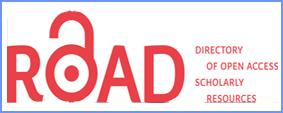THE VALUE AND MEANING OF MOANGGO IN TOLAKI SOCIETY IN SOUTH EAST SULAWESI
Abstrak
Moanggo, an oral literature of Tolaki people is currently at risk of being wiped out as it is now only rarely played at traditional wedding ceremonies in Tolaki. It is among the identity markers of Tolaki people loaded with messages for private, family and social lives. On this basis, this study aims to (1) Describe the meaning contained in Moanggo as a local literature of Tolaki people. (2) Describe the values contained in Moanggo as a traditional oral literature of Tolaki people.
This research is a qualitative descriptive study. To achieve the objectives, this study applies the theoretical framework of Paul Ricœur’s hermeneutics. Data sources to be examined in this investigation comprise some informants and the Anggo text itself. The data are also obtained from observations, interviews and documents. The data are then analyzed using Milles and Huberman’s technical data analysis, namely: 1) Data collection, 2) Data reduction or simplification of data, 3) Presentation of data, and 4) inference / verification.
The results indicate that the meaning of the Anggo text in oral narrative of Moanggo cannot be separated from the socio-historical cultural context when it is narrated. Therefore, every text has been linked with the socio-cultural context of Tolaki people at present time, and it is of course a representation of the history of life of Tolaki people in the past. The values contained in the Anggo text comprise the value of education, moral values, cultural values and philosophical values. Moanggo as an oral literature of Tolaki people is an identity marker for Tolaki people, and it is presently at risk of extinction due to its lack of use in wedding customs and other cultural activities. Therefore, the preservation of the oral literature Moanggo needs to be maintained by both the government and the Tolaki society.Referensi
Acikgence, Alparslan. 1996. “The Framework for a History of Islamic Philosophy”, in Journal of the Institute of Islamic Thought and Civilization.
Ahmadi, Abu and Uhbiyati. 2007. Ilmu Pendidikan. Jakarta: Rineka Cipta.
Alfian. 1985. Politik, Kebudayaan dan Manusia Indonesia. Jakarta: LP3ES
Arifin, Bustanul. 1990. Sastra Indonesia (lama-baru-modern). Bandung: Angkasa.
Aswati, 2000. Kalosara dalam Kehidupan Masyarakat Tolaki. Unaaha: a paper presented in Musyawarah Adat I Suku Bangsa Tolaki.
Bertens, K. 1996. Etika. Jakarta: Gramedia Pustaka Utama.
Bowie, Andrew. 1998. “Introduction” in Friedrich Daniel Ernst Schleiermacher, Schleiermacher: Hermeneutics and Criticism and Other Writings. Cambridge Text in the History of Philosophy (ed. and trans. Andrew Bowie). Cambridge-New York: Cambridge University Press.
Bulhof, Ilsen. 1980. Wilhem Dilthey: A Hermeneutic Approach to the Study of History and Culture (Boston: Martinus Nijhoff Publisher.
Caputo, John D. 1987. Radical Hermeneutics: Repetition, Deconstruction and Hermeneutic Project. Bloomington, Indiana: Indiana University Press.
Eco, Umberto. 1990. The Limits of Interpretation. Bloomington: Indiana University Press.
Gadamer, Hans-Georg. 1975. Truth and Method (trans. Dan Revisi Joel Weinsheimer and Donald G. Marshall) London: Crossroad Publishing Co.
-------------. 1976. Philosophical Hermeneutics (terj. Dan ed. David E. Linge). Berkeley-Los Angeles-London: University of California Press.
Hadot, Piere, 1999. Philosophy as a Way of Life.Oxford-Massachusset: Blackwell Publisher, ltd.
Hoed, Benny H. 2004. “Bahasa dan Sastra dalam Tinjauan Semiotik dan Hermeneutik” in Tommy Christomy and Untung Yuwono (ed.), Semiotika Budaya. Jakarta: Pusat Penelitian Kemasyarakatan dan Budaya Direktorat Riset dan Pengabdian Masyarakat Universitas Indonesia.
Hutomo, Suripan Sadi. 1991. Mutiara yang Terlupakan: Pengantar Studi Sastra Lisan. Surabaya: HISKI Jawa Timur.
Idaman dan Rusland. 2012. “Islam dan Pergeseran Pandangan Hidup Orang Tolaki”, Al-Ulum Jurnal Studi-Studi Islam, Vol. 12 No. 2, h. 267-302.
Koentjaraningrat. 1984. Kebudayaan, Mentalitas, dan Pembangunan. Jakarta: PT. Gramedia
Koodoh, Erens Elvianus, Abdul Alim, dan Bacharuddin. 2011. Hukum Adat Orang Tolaki. Yogyakarta: Teras Kerjasama dengan Kantor Penelitian dan Pengembangan Pemerintah Daerah Kabupaten Konawe.
Lakebo dkk, 1977/1978. Adat Istiadat Daerah Sulawesi Tenggara. Jakarta: Departemen Pendidikan dan Kebudayaan Pusat Penelitian Sejarah dan Budaya proyek penelitian dan Pencatatan Kebudayaan Daerah.
Leidecker, Kurt F. 1976. “Hermeneutics,” dalam Dagobert D. Runes (ed.), Dictionary of Philosophy. Totowa, NJ: Littlefield, Adams & Co.
Nurgiyantoro, Burhan. 1995. Teori Pengkajian Fiksi. Yogyakarta:Gajah Mada University Press.
Palmer, Richard E. 1969. Hermeneutics: Interpretation Theory in Schleiermacher, Dilthey, Heidegger, and Gadamer. Evanston, IL: Northwestern University Press.
Pradopo, Rachmat Djoko. 2008. Beberapa Teori Sastra, Metode Kritik, dan Penerapannya. Yogyakarta: Pustaka Pelajar.
Pusat Bahasa Depdiknas. 2005. Kamus Besar Bahasa Indonesia Edisi ke-3. Jakarta: Balai Pustaka.
Rafiek, M. 2010. Teori Sastra kajian; Teori dan Praktik. Bandung: P.T Refika Aditama.
Rahmawati dkk. 2007. Sastra Lisan Tolaki. Kendari: Kantor Bahasa Sultra.
Ratna, Nyoman Kutha. 2008. Teori, Metode, dan Teknik Penelitian Sastra. Yogyakarta: Pustaka Pelajar.
Ricouer, Paul. 1982. Hermeneutics and Human Sciences. Cambridge (UK): Cambridge University Press
Semi, Atar. 1993. Metode Penelitan Sastra. Bandung: Angkasa.
Sumaryono, E,.1999. Hermeneutik: Sebuah Metode Filsafat, Yogyakarta: Penerbit Kanisius.
Suseno, Frans Magnis. 1998. Model-Model Pendekatan Etika. Jogjakarta: Kanisius.
Tarimana, Abdurrauf. 1993. Kebudayaan Tolaki. Jakarta: Balai Pustaka.
Teeuw, A. 1984. Sastra dan Ilmu Sastra: Pengantar Teori Sastra. Jakarta: Pustaka Jaya.
Tinambunan, T. Raman dkk. 1996. Sastra Lisan Dairi. Jakarta: Depdikbub.
Tondrang, Azis. 2000. Peranan Kalosara dalam Pembentukan Karakter Masyarakat Tolaki. Unaaha: Makalah dalam Rangka Musyawarah Adat I Suku Bangsa Tolaki.
Tuloli, Nani. 1991. Tanggamo: Salah Satu Ragam Sastra Lisan Gorontalo. Jakarta : Intermassa.
Zaidan, Abdul Rozak, dkk. 1996. Kamus Istilah Sastra. Jakarta: Balai Pustaka.
-----------------. 2007. Kamus Istilah Sastra. Jakarta: Balai Pustaka.
Zarkasyi, Hamid Fahmi, “Pandangan Hidup, Ilmu Pengetahuan, dan Pendidikan Islam”, www.fajarislam.com retrieved on 17 Januari 2010.




.png)









